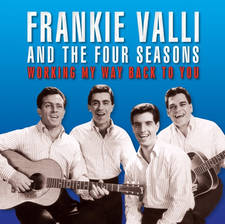Paul Simon explains why Simon & Garfunkel were "broken" and had to split
22 March 2024, 12:15

Paul Simon performs on Colbert
Paul Simon talks about his fateful split from Art Garfunkel.
Listen to this article
Paul Simon has opened up about one of the biggest break-ups from music, his split from Art Garfunkel.
Simon & Garfunkel were one of the greatest-ever duos, releasing five classic albums in their first major run and having several successful reunions before finally calling it a day in 2010.
- Paul Simon admits he doesn't blame Art Garfunkel for the pair's acrimonious split
- Paul Simon offers positive update on hearing loss: "I can hear my voice the way I want it"
- Listen to the Gold 60s Live Playlist on Global Player, the home of Gold
Both men have discussed the break-up in the past, and in a new documentary series In Restless Dreams: The Music of Paul Simon, Paul has spoken at length about why they parted ways after their last studio album back in 1970.
“We were really best friends up until Bridge over Troubled Water," Paul says in the first episode (via People).
"[Afterwards], it didn’t have the harmony of the friendship... that was broken."

After more than half a decade working together in close quarters, Garfunkel took extended leave from the partnership to forge an acting career.
He made his debut with a significant role in Mike Nichols' adaptation of Catch-22 in 1970, following it up with a Golden Globe-nominated role in the same director's Carnal Knowledge the following year.
"Artie said, 'Yeah, the way it's going to be is that I will do movies for six months, then I'll come back, you'll have written the songs, and we will do the album,'," Simon said.

Simon & Garfunkel - Bridge over Troubled Water (from The Concert in Central Park)
“And I thought, ‘Yeah? Actually, no. That’s not gonna happen. I am not gonna do that'."
He added that the overrun in the shooting of Catch-22 "disrupted" everything between the pair and "was a recipe for the breakup of Simon & Garfunkel".
But there were faultlines even before Garfunkel's distance changed how they were working together.

"We had an uneven partnership because I was writing all of the songs and basically running the sessions," Simon said.
"I would say, 'This is how it goes, and this is the guitar part, and you should be playing that on drums, and the bass should be doing this'.
"Artie would be in the control room with [producer] Roy [Halee], and he'd say, 'Yeah, that’s good, let’s do that', but it was an uneven balance of power."












